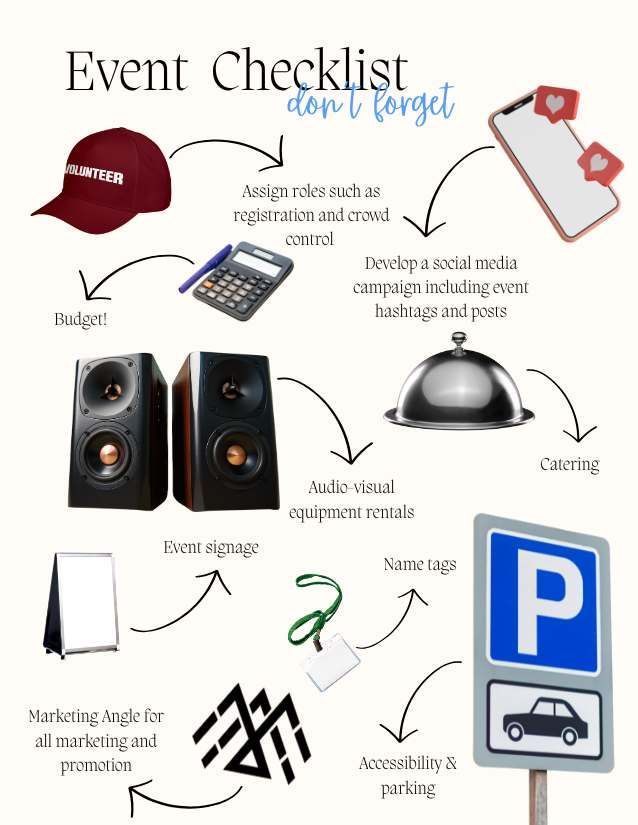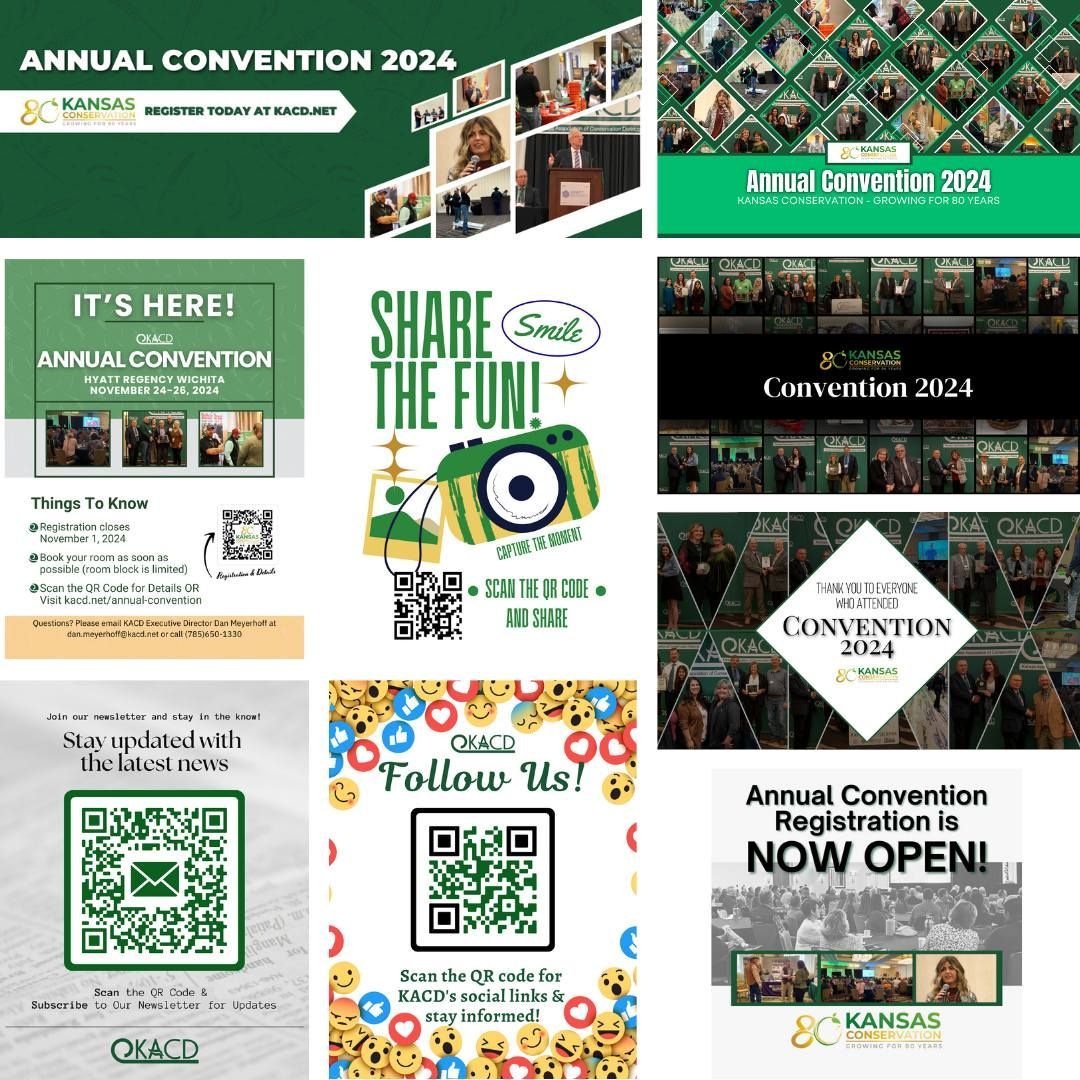Video Production
Event Promotion
How much should you budget for an event?
There are so many things to consider in your event budget. The easy answer is:
- Small to Mid-Size Event: $30,000 - $100,000
- Large Event (300+ attendees): $100,000 - $500,000
- Very Large Event (1000+ attendees or high-profile): $500,000 - $1,000,000
The budget for planning a large event can vary widely depending on a range of factors, including the event's size, location, duration, purpose, and audience. However, a realistic budget for a large event typically includes several key categories and ranges based on these factors. Here's an overview of what a large event budget might look like, with estimated costs for each category:
1. Venue
Cost Range: $5,000 - $100,000+
The venue will be one of the biggest costs. For a large event, the location's size, facilities, and prestige will influence the price. You’ll also need to consider factors like rental fees, insurance, and additional costs (e.g., security, cleaning, and utilities).
2. Catering
Cost Range: $10,000 - $50,000+
Catering costs vary depending on the number of guests, type of food (buffet, plated meals, hors d'oeuvres), and whether alcoholic beverages are provided. A large event could easily involve thousands of attendees, increasing the food and beverage costs significantly.
3. Audio-Visual Equipment
Cost Range: $5,000 - $30,000+
This includes microphones, lighting, sound systems, screens, projectors, and technical support. The complexity of the AV setup depends on the event’s activities—conferences, presentations, and live performances may require advanced AV solutions.
4. Event Staffing
Cost Range: $5,000 - $20,000+
Staff needed to run the event includes security personnel, registration teams, ushers, tech support, and other event coordinators. For a large-scale event, this can quickly add up. Temporary event staff or contractors will typically be paid on an hourly basis.
5. Entertainment and Speakers
Cost Range: $5,000 - $50,000+
Hiring keynote speakers, panelists, or entertainers (musicians, performers, etc.) can be a significant part of the budget. High-profile speakers or entertainers can demand much higher fees.
6. Marketing and Promotion
Cost Range: $5,000 - $25,000+
Marketing the event involves digital ads, social media promotions, influencer partnerships, flyers, and other marketing collateral. The larger the audience and the more competitive the industry, the more money you’ll need to spend on promotion.
7. Technology and Event Management Software
Cost Range: $2,000 - $10,000+
For large events, utilizing event management software (for registration, ticketing, etc.) and event apps for attendees is essential. Additionally, Wi-Fi, tech support, and streaming costs (for hybrid or virtual events) must be factored in.
8. Decor and Branding
Cost Range: $2,000 - $20,000+
Decorations, signage, event branding (banners, booths, etc.), and thematic elements contribute to creating a memorable atmosphere. Custom-built displays or elaborate décor will significantly impact this cost.
9. Transportation and Accommodation
Cost Range: $5,000 - $30,000+
If your event attracts out-of-town attendees, you’ll need to budget for transportation (shuttles, taxis, etc.) and possibly hotel accommodations. This can be especially expensive if you’re organizing a multi-day event.
10. Insurance
Cost Range: $500 - $10,000+
Event insurance covers liability, property damage, and unforeseen circumstances. The cost of insurance depends on the size and nature of the event and the risks involved.
11. Miscellaneous Costs
Cost Range: $2,000 - $10,000+
This category covers unforeseen costs, such as last-minute materials, emergency supplies, extra permits, or unexpected upgrades (e.g., extra AV equipment).
What is the best way to promote an event?
Promoting an event effectively requires a well-rounded strategy that targets your audience through multiple channels and tactics. Here are some of the best ways to promote an event:
Leverage Social Media
- Create Event Pages: Set up dedicated event pages on Facebook, LinkedIn, and other social platforms where attendees can RSVP, share the event, and stay updated.
- Hashtags: Develop a unique, catchy hashtag for your event. Encourage attendees and influencers to use it, which can create a buzz and make the event more discoverable.
- Paid Ads: Use targeted ads on platforms like Facebook, Instagram, LinkedIn, or TikTok to reach your specific audience, whether it’s based on demographics, interests, or behaviors.
- Influencer Partnerships: Partner with industry influencers to promote your event. Influencers can help build credibility and reach a wider audience.
Email Marketing
- Early Invitations: Send out “Save the Date” and early registration emails to your existing audience and mailing list.
- Segmentation: Tailor your emails for different audience segments (e.g., VIPs, exhibitors, general attendees). Make the emails personalized and compelling.
- Countdown Emails: As the event approaches, send regular reminders, highlight key speakers or attractions, and provide last-minute registration links.
- Post-Event Follow-Up: Send a thank-you email after the event, share highlights, and gather feedback for future events.
Content Marketing
- Blog Posts and Articles: Write blog posts or articles that highlight aspects of the event, like interviews with speakers, benefits of attending, or behind-the-scenes preparations. This can help with SEO and engage potential attendees.
- Guest Posts: Collaborate with influencers or thought leaders in your industry to write guest posts about the event on their platforms or blogs.
- Video Content: Share teaser videos, speaker highlights, and event sneak peeks. Video is highly engaging and shares information in a more dynamic way.
Utilize Event Websites & Event Listings
- Event Aggregators: List your event on platforms like Eventbrite, Meetup, or Eventful, which allow people to search for events by category, location, and date.
- Partner with Industry Websites: If your event is industry-specific, post it on websites and forums related to your niche. Many trade shows or conventions list events on their sites.
Leverage Partnerships and Sponsors
- Co-Promotions: Work with sponsors, partners, or other organizations in your industry to promote the event. They can share the event with their audiences via their email lists, websites, and social channels.
- Collaborations: Partner with companies or influencers who are aligned with your event’s mission and audience, offering them visibility in exchange for promoting the event.
Press Releases and Media Outreach
- Press Releases: Send out press releases to local or industry-specific media outlets, especially if your event has big names or new product launches.
- Media Coverage: Reach out to journalists or bloggers who cover your industry or event type, and offer them exclusive access to the event in exchange for coverage.
- Radio/TV Interviews: If your event is large enough, securing a short interview or a mention on local radio or TV shows can generate attention.
Create an Event App or Landing Page
- Event App: For larger events or conferences, consider developing an event-specific app where attendees can get information, view schedules, and connect with others.
- Landing Page: Create a compelling, mobile-friendly landing page dedicated to the event. This should include all relevant information, such as the event agenda, speakers, registration links, and FAQs.
Use Paid Advertising
- Google Ads: Use Google Ads to target people searching for related events or keywords. Pay-per-click (PPC) ads can be highly effective when targeting event-specific terms.
- Retargeting: Set up retargeting ads for people who visited your event site but didn’t register, keeping your event top-of-mind.
Host a Pre-Event Giveaway or Contest
- Incentivize Attendees: Run a contest where people can win free tickets, VIP passes, or other event-related perks. This can generate buzz and encourage attendees to spread the word.
- Partnered Giveaways: Collaborate with event sponsors or partners on a giveaway, offering their products/services as prizes to encourage event participation.
Engage Local Communities and Groups
- Local Networks: Promote your event through local organizations, clubs, universities, or chambers of commerce. People within your area might be more likely to attend an event that’s relevant to their local community.
- Interest Groups: Engage specific industry groups or niche communities via online forums, Facebook Groups, or LinkedIn groups.
Leverage Word of Mouth
- Referral Programs: Offer discounts, free tickets, or VIP access to attendees who refer others to the event.
- Ambassador Programs: Create an ambassador program where key attendees or influencers actively promote the event on social media, offering them incentives or perks.
Create Engaging Event Materials
- Event Flyers & Posters: Distribute event flyers in relevant locations (cafes, libraries, co-working spaces) or mail them to key contacts.
- Branded Merchandise: Give away event-branded swag (t-shirts, bags, mugs) to spread the word and increase visibility.
Offer Early Bird Discounts and Group Rates
- Early Bird Offers: Offer discounted tickets or packages for those who register early to create a sense of urgency.
- Group Discounts: Encourage people to bring colleagues, friends, or associates by offering group discounts for bulk ticket purchases.
Post Teasers and Build Anticipation
- Tease Special Announcements: Post sneak peeks of what’s to come—such as special guest speakers, entertainment, or new product launches—to build excitement leading up to the event.
- Countdowns: Use social media to post countdowns, reminding potential attendees of the time left before registration closes.
On-site Engagement (For In-Person Events)
- Event Activation: Use interactive booths, live demos, or experiential marketing to engage attendees and build excitement. Create shareable experiences so attendees can promote the event on their own social media.
- Engagement During Event: Encourage attendees to post about their experience in real-time using the event hashtag, and offer incentives like contests or giveaways for the best posts.
A comprehensive promotional strategy will combine multiple channels to increase visibility, engage your target audience, and drive attendance. Tailor your tactics to your specific event and audience for the best results.
What is the best way to get attendees engaged at my event?
Getting attendees engaged at your event, trade show, or convention is key to creating memorable experiences and ensuring your event's success. Engaged attendees are more likely to interact, network, and remember the event long after it's over. Here are some of the best ways to get attendees excited and involved:
Engaging Speakers and Sessions
- Interactive Workshops: Instead of just lectures or presentations, offer workshops where attendees can participate in hands-on activities or brainstorming sessions. This keeps them active and engaged.
- Panel Discussions with Audience Interaction: Allow the audience to submit questions or ideas for panel discussions before or during the event. It can help spark more interesting dialogue and make attendees feel involved.
- Incorporate Storytelling: Speakers who use storytelling, case studies, or real-life examples are often more engaging. People connect better with stories than with dry facts and figures.
Creative Booths and Exhibits
- Interactive Exhibitor Booths: Encourage exhibitors to make their booths interactive, offering product demos, free trials, or hands-on experiences that attendees can engage with.
- Live Demos and Presentations: Schedule live demonstrations that allow attendees to experience products or services in action. This can draw attendees into the booth and start a conversation.
- Photo Ops & Selfie Stations: Set up fun, branded photo stations where attendees can take pictures with props or backdrops related to the event. Share the photos on social media to spread excitement.
Incentives and Rewards
- Giveaways & Prizes: Offer exclusive giveaways, raffles, or prizes for attendees who participate in activities, engage with exhibitors, or attend specific sessions. This creates an incentive for involvement.
- Swag Bags & Merchandise: Offer branded event merchandise or personalized swag bags for attendees who participate in specific activities or visit certain booths. This adds value and excitement to the event experience.
Social Media Engagement
- Social Media Challenges: Create challenges or contests on platforms like Instagram, Twitter, or TikTok with a unique event hashtag. For example, ask attendees to share their event experiences, and offer prizes for the best posts or most creative photos.
- Live Streaming: Live stream key sessions or behind-the-scenes moments from your event. Allow online attendees to interact via live chat, comments, or polls to feel included.
- Event Hashtags: Promote a specific event hashtag and encourage attendees to use it when posting on social media. Offer rewards for posts that receive the most likes, shares, or engagement.




